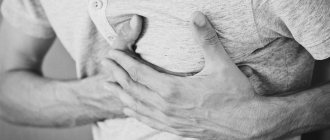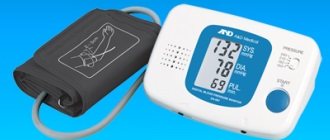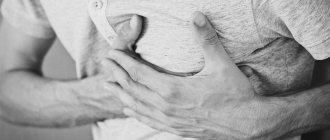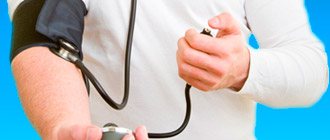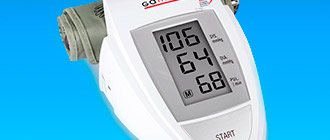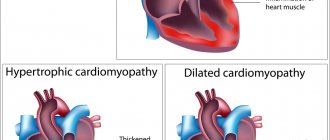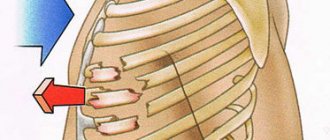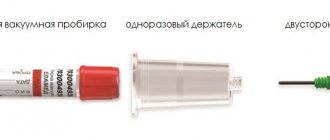JSC "Medicine" (clinic of academician Roitberg) operates a Pain Treatment Center. More details about the Pain Treatment Center
Gastroenterologist
Vinogradov
Dmitry Alekseevich
4 years of experience
Gastroenterologist
Make an appointment
Abdominal pain occurs in many situations. Most often this is a symptom of a less serious disorder, but in some cases it may indicate a more serious condition. Here it is important to consider the different parameters regarding pain.
Causes of abdominal pain
Pain can have a different shape, character, and duration. Taking into account all these parameters, the causes of abdominal pain are distinguished:
- acute appendicitis (the pain does not go away, it can migrate and be aching). If it suddenly calms down, then this may indicate that the intestines have ruptured. In this case, urgent medical attention is needed;
- acute pancreatitis (abdominal pain is quite severe, located on top of the abdomen, but can radiate to the back). This condition is also accompanied by an unpleasant aftertaste, dry mouth, and vomiting;
- acute gastritis. The stomach hurts after eating, there is a feeling of heaviness, pain in the area under the stomach. At the same time, the person wants to burp or vomit violently. In such situations, you need to consult a gastroenterologist;
- intestinal colic. The stomach hurts and pulls sharply, in flashes, reminiscent of contractions. This pain is located near the navel and usually the person feels chills and general weakness. To improve the patient's condition, you need to provide bed rest and take special medications. In addition, it is important to reconsider your own diet;
- kidney inflammation. The stomach begins to hurt and the temperature rises;
- passing of kidney stones. Such pains are acute in nature and occur in the perineum and lower back. A person often wants to go to the toilet. A warm bath and antispasmodic drugs will help here. If there is blood during urination, you should urgently call a doctor;
- diseases of the duodenum and stomach. These pains occur from time to time in the pit of the stomach, near the navel. However, they may appear after eating. The result is heaviness, belching, bloating;
- ulcer. The pain disappears after eating, but heartburn, a white coating on the tongue, and a sour taste appear. In addition, a person suffering from an ulcer may experience toxicosis, constipation, and increased flatulence in the morning;
- cholecystitis. Periodic pain occurs in the right hypochondrium, in the abdomen, and in its upper part. They radiate to the shoulder and lead to decreased appetite, upset stomach, constipation, periodic vomiting, dry mouth, nausea, belching;
- stressful situation. The lower abdomen hurts, the sensations are aching. At the same time, a person becomes too active or passive. In this situation, you should avoid products that contain coffee and take sedatives.
What to do if symptoms are present
If a woman has pain in her lower abdomen for a long time, she should consult a doctor. He will examine the patient, study all the features of the body, and palpate the stomach with his fingers.
If a man comes to the appointment, then usually his testicles and penis are examined, if a woman, then the doctor examines the pelvic area. This allows you to understand whether the lower abdomen hurts due to the uterus, ovaries, and fallopian tubes.
When to see a doctor
You should visit a specialist if the following symptoms appear:
- the duration of pain is more than 6 hours without a break, high intensity;
- in case of sharp pain in the lower abdomen on the right;
- if your stomach hurts after eating;
- if the pain is very strong, appetite disappears;
- when experiencing pain, a person vomits several times in a row;
- if pain in the lower abdomen occurs in pregnant women;
- in case of increased pain when changing body position;
- when the stomach hurts at the navel, then movement occurs. If pain is felt in the lower right quadrant, this may indicate appendicitis;
- if sleep is interrupted due to pain;
- pain ends in bleeding (in pregnant women);
- if in addition to pain there is a high temperature;
- if it is painful for a person to release gases, as well as during bowel movements and urination;
- if there is any kind of pain in the abdomen on the right, which differs from the usual discomfort in the stomach area.
It is best to visit a doctor if your stomach hurts for a week. Then you can avoid serious consequences.
When urgent medical attention is needed
You should call an ambulance as soon as possible in the following situations:
- if your stomach hurts badly and this leads to loss of consciousness and inability to breathe. This is typical for diseases such as liver failure, acute pancreatitis, abdominal bleeding;
- if the stomach hurts badly, a fever appears and the person is unable to move;
- painful sensations in the abdominal area lead to vomiting for several hours or vomiting blood;
- if the intestines do not work for several days due to acute pain. This may indicate obstruction of the digestive tract;
- if bleeding has started from the rectum. If the pain in the lower abdomen is acute, then a person may develop hemorrhagic gastropathy and intestinal ischemia. In the case of a chronic disease, abdominal pain with simultaneous bleeding indicates cancer;
- a person may have pain in the abdomen, chest, but he is not entirely sure of its placement. In such cases, heart disease often occurs;
- Men have stomach pain (groin area). This may indicate testicular torsion. If left untreated, tissue necrosis is possible.
Treatment of abdominal pain
If your stomach hurts, doctors can use two treatment methods - surgery or a conservative method. Sometimes it is necessary to undergo surgery (appendicitis, intestinal obstruction) to save a life. At JSC "Medicine" (clinic of Academician Roitberg), you can undergo effective treatment in a hospital; for this, visit the page.
The most important thing is to visit a specialist on time. He will study the whole picture and prescribe the necessary treatment. If it hurts in the front of the abdomen, tests are taken and all the research is done. Based on this, a diagnosis is already made.
Abdominal pain during pregnancy
If the symptoms listed above are absent, then heaviness in the abdomen and pain may indicate other causes. Pain in the lower abdomen may occur during pregnancy in women who are in the first trimester. This happens as the uterus grows and blood circulation increases. If a woman is pregnant, but the term is later, then abdominal pain may be associated with the fact that the baby’s weight has increased. Such sensations inside the abdomen can also occur as a result of stretching of the pelvic floor muscles, pressure on the rectum and bladder from the side of the uterus.
However, if your stomach hurts with nagging pain, you feel heaviness, but you also have vaginal discharge, spasms, pain, then you should definitely go to a specialist. Such symptoms can prevent premature birth, ectopic pregnancy, and miscarriage.
During pregnancy, your stomach may hurt due to diastasis. The growing uterus puts pressure and causes the abdominal muscles to separate. In most cases there is no pain, but sometimes there is pain in the back and navel. You don't need a doctor's help here. Almost always everything returns to normal after childbirth is over.
Treatment at home
Everything is quite simple here; you can use some methods when there is pain in the lower abdomen:
- eat prunes if you have pain in your lower abdomen. You can also take any product that contains a lot of dietary fiber (broccoli, bran). Prunes are especially useful in such situations because they contain sorbitol (a laxative of natural origin);
- Drink tea made from ginger, chamomile or peppermint. Such herbs reduce nausea and help with abdominal pain. With the help of ginger you can normalize digestion, chamomile and mint will help relieve muscle spasms;
- Use baking soda and prepare an aqueous solution. Baking soda is found in most antacid medications. It is worth taking 1 tbsp. baking soda and dilute with warm water (1 cup);
- Get a massage if your stomach hurts during your period. Spasms may occur inside due to the muscles being too tense. You will need a light massage, you need to focus on the place where it hurts the most;
- take a bath with hot water. Water will relax muscles, improve blood circulation, and relieve pain. You need to lie down for about 20 minutes. If a woman has a stomach ache, you can throw Epsom salts into the bath.
The heart has nothing to do with it
The esophagus, the organ that connects the pharynx with the stomach, is a muscular tube approximately 25 cm long. But, despite its relatively small size, there are many diseases directly related to this organ. Among them are malignant and benign tumors, diverticula, burn strictures of the esophagus, cardiospasm, fistulas, etc.
The esophagus is located quite deep and extremely delicate, so surgical intervention on it is quite difficult and time-consuming; accordingly, such operations should be carried out only in medical institutions specializing in this area. Otherwise, achieving a positive result can be very difficult.
The "cardia" is the upper part of the stomach. People often experience spasms in the area where the esophagus enters the stomach. Normally, when food passes through the esophagus, a valve opens below and everything we ate for breakfast or lunch safely enters the stomach. This is a rather complex mechanism, in which sometimes a malfunction can occur - the valve does not open in time, and then food stagnates in the esophagus (sometimes for a very long time - several days). This phenomenon is even physically felt quite clearly. Over time, the esophagus expands, which brings new problems. The cause of the above diseases is a violation of the innervation (conduction of nerve impulses) of the esophagus.
The main method of treating gastric cardiospasm is dilatation (stretching the junction of the esophagus into the stomach). A special balloon is installed through the mouth into the cardia area, which is inflated to a certain pressure. The session takes about a few minutes. A total of 3 to 6 such procedures are required at intervals of 1–2 days, and then the person can be discharged from the hospital. If the patient subsequently experiences the same complaints, the procedure can be repeated. Repeated courses of dilatation can achieve positive results in 84% of patients. Diffuse esophagospasm is treated conservatively in a specialized hospital.
If at the initial stage of the disease the esophagus is practically not dilated, then in advanced cases, on the contrary, it expands several times, turning into a huge muscular sac with S-shaped bends. The muscles of the organ atrophy, and therefore the esophagus can no longer cope with its main task - moving food. Therefore, at the IV (last) stage of the disease, as a rule, only surgery is effective.
Prevention
These rules should be followed by all people who experience pain in the left lower abdomen:
- control your stress and its level. To do this, you should meditate and do stretching exercises. Very often, stomach problems arise due to stress. Stretching, meditation will relax the body, mind, reduce pain in the left abdomen;
- Exercise regularly if your stomach hurts on the lower right side. Thanks to constant exercise, constipation is prevented and metabolism is accelerated. In addition, sport helps strengthen the digestive tract, cleanse the intestines, and ensure efficient functioning of the stomach;
- fill out a food diary. Write down all the dishes you ate throughout the day there. This will help you understand why your stomach hurts. You can prescribe your diet for a week, and it is important to indicate even the amount of food consumed. You should also write down your feelings during abdominal pain in your diary (the nature of the pain, their duration);
- watch your weight. Just because you're overweight and not much of it, doesn't mean you can forget about heartburn. Scientists say that the layer of fat puts pressure on the stomach, causing gastric juice to rise into the esophagus, and this guarantees heartburn;
- drink more water if your stomach hurts (about 2.2 liters). To have regular bowel movements and digest food, you need to drink enough liquid. Otherwise, hemorrhoids, polyps, and painful constipation are possible;
- get plenty of rest. If there is a stomach virus in the body, then you should be at peace and have strength. In the case of acid reflux, lack of adequate sleep can lead to serious consequences.
Don't waste time!
Heartburn that haunts a person or difficulty passing food should definitely alert the person. You should not wait until these unpleasant phenomena go away on their own; it is also dangerous to self-medicate by taking widely advertised heartburn medications or digestive enzymes. After all, as in the treatment of any disease, one of the most important conditions for a favorable outcome of esophageal diseases is a timely visit to a doctor.
Diseases of the esophagus can also manifest themselves with symptoms that, at first glance, have nothing to do with the digestive tract. For example, reflux (reflux) of stomach contents into the esophagus can cause angina. A person suffers from pain and burning behind the sternum and is regularly (but, alas, unsuccessfully) treated by a cardiologist, while the true cause of his ailment lies in the incompetence of the valve between the esophagus and the stomach.
Another symptom is chronic tracheitis and bronchitis. Often in the morning a person’s voice “sits down.” Sometimes a patient with cardiospasm is diagnosed with bronchial asthma, while the main culprit of troubles with the bronchi is... food stagnant in the esophagus, which usually at night, when a person is in a horizontal position for a long time, flows into the respiratory tract and causes inflammation there. Therefore, a person suffering from cardiospasm, especially stages III and IV of the disease, risks not only developing more serious problems with the esophagus, but also developing pneumonia.
The main study that needs to be done is an x-ray with a contrast agent. The second is esophagogastroscopy. Almost any existing pathology of the esophagus will be detected in this way with a high degree of probability.
Which specialist should I contact?
It all depends on the reason why your stomach hurts. Initially, you should contact a therapist who works at (academician Roitberg’s clinic). He will perform a diagnosis and then refer you to the right specialist. If the diagnosis is fibroids, then you will need to consult a gynecologist (), if a person has kidney stones, then you need a nephrologist (), if you have diagnosed a duodenal or gastric ulcer, then you need the help of a gastroenterologist (). In case of ovarian torsion or appendicitis, the patient is referred to a surgeon (), and with bruises and injuries the patient will be treated by a therapist ().
To contact JSC "Medicine" (metro Mayakovskaya, metro Belorusskaya, metro Tverskaya, metro Chekhovskaya), you should dial phone numbers or drive up in person. If you have abdominal pain on the left side and want to reach a therapist, who should always begin examining the patient, dial the phone number.
